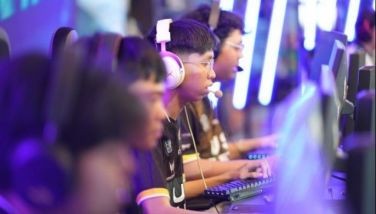WB ready to hike financial aid to RP
October 20, 2002 | 12:00am
The World Bank is prepared to increase its financial assistance to the Philippines up to $1.7 billion for 2003 to 2005 as long as there are clear improvements in the country beneficiary’s portfolio performance, absorptive capacity, and policy reforms.
"Instruments to pursue the objectives (of the Philippine government) will include lending and non-lending services of the International Bank for Reconstruction and Development (IBRD), an affiliate of the World Bank, as well as interventions by the International Finance Corp. (IFC) and the Multilateral Investment Guarantee Agency (MIGA)," the global financial institution said in a report.
The country assistance strategy (CAS) report foresees a likely IBRD lending program of about $1.1 billion over the three-year period of FY2003-05, including three to four investment operations, a year and two adjustment operations, that provides policy reforms and portfolio management measures.
The World Bank affiliate said, however, that it would continue "to emphasize improvements in ongoing Bank-financed operations, particularly with regard to accelerating project implementation and delivery of development benefits."
The same report said that the amount might be reduced depending on the performance monitoring. Close monitoring of risks and project performance is the key feature of the CAS, including close supervision and up-front assessment of institutional capacity.
"The strength of the Philippine government’s policy actions will determine the scope of the Bank’s interventions. In the most likely lending scenario, the Bank’s exposure in the Philippines is expected to decline slightly."
The World Bank explained that the Arroyo administration’s medium-term thrust is poverty alleviation, which would require overcoming internal and external forces.
On the external side, the government must cope with fluctuations in global markets on which it depends heavily. The prospects of a Middle East military conflict, the threat of skyrocketing oil prices, and the weakening of the world economies are among disturbing external factors that are expected to apply pressure on the country’s performance.
On the internal side, the Philippines needs to win back the confidence of investors in order to raise the currently low volume of investment that is necessary for the country’s development.
The World Bank said that other new project lending would respond more directly to local and community needs.
"Instruments to pursue the objectives (of the Philippine government) will include lending and non-lending services of the International Bank for Reconstruction and Development (IBRD), an affiliate of the World Bank, as well as interventions by the International Finance Corp. (IFC) and the Multilateral Investment Guarantee Agency (MIGA)," the global financial institution said in a report.
The country assistance strategy (CAS) report foresees a likely IBRD lending program of about $1.1 billion over the three-year period of FY2003-05, including three to four investment operations, a year and two adjustment operations, that provides policy reforms and portfolio management measures.
The World Bank affiliate said, however, that it would continue "to emphasize improvements in ongoing Bank-financed operations, particularly with regard to accelerating project implementation and delivery of development benefits."
The same report said that the amount might be reduced depending on the performance monitoring. Close monitoring of risks and project performance is the key feature of the CAS, including close supervision and up-front assessment of institutional capacity.
"The strength of the Philippine government’s policy actions will determine the scope of the Bank’s interventions. In the most likely lending scenario, the Bank’s exposure in the Philippines is expected to decline slightly."
The World Bank explained that the Arroyo administration’s medium-term thrust is poverty alleviation, which would require overcoming internal and external forces.
On the external side, the government must cope with fluctuations in global markets on which it depends heavily. The prospects of a Middle East military conflict, the threat of skyrocketing oil prices, and the weakening of the world economies are among disturbing external factors that are expected to apply pressure on the country’s performance.
On the internal side, the Philippines needs to win back the confidence of investors in order to raise the currently low volume of investment that is necessary for the country’s development.
The World Bank said that other new project lending would respond more directly to local and community needs.
BrandSpace Articles
<
>
- Latest
- Trending
Trending
Latest
Trending
Latest
Recommended



























